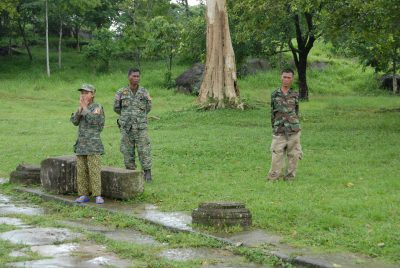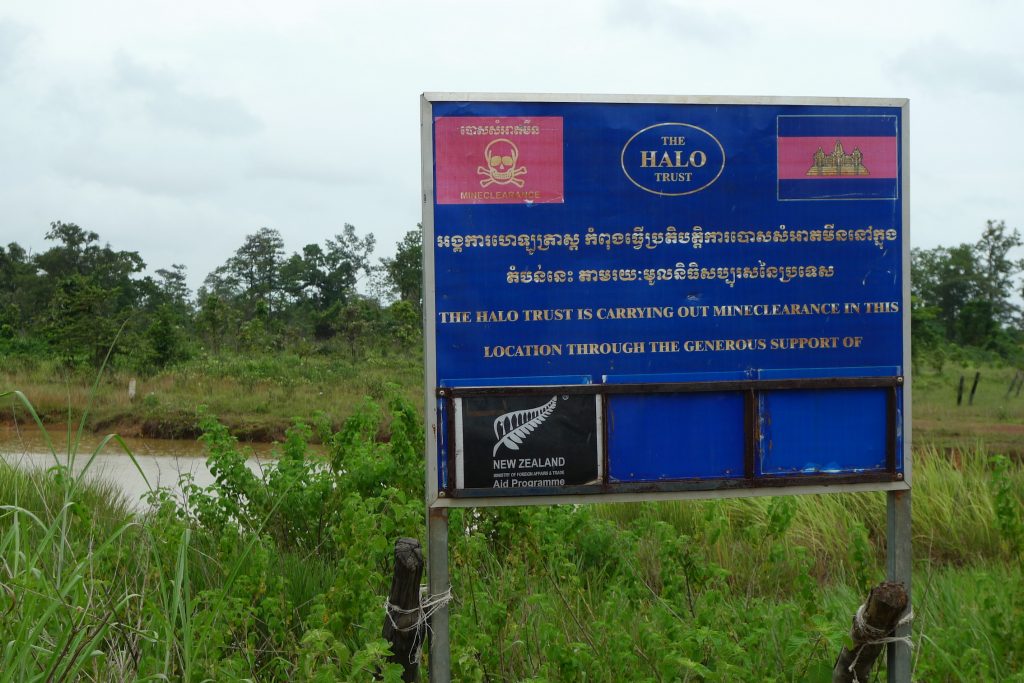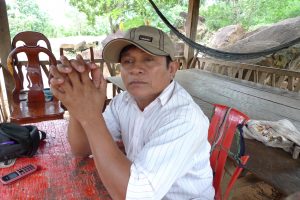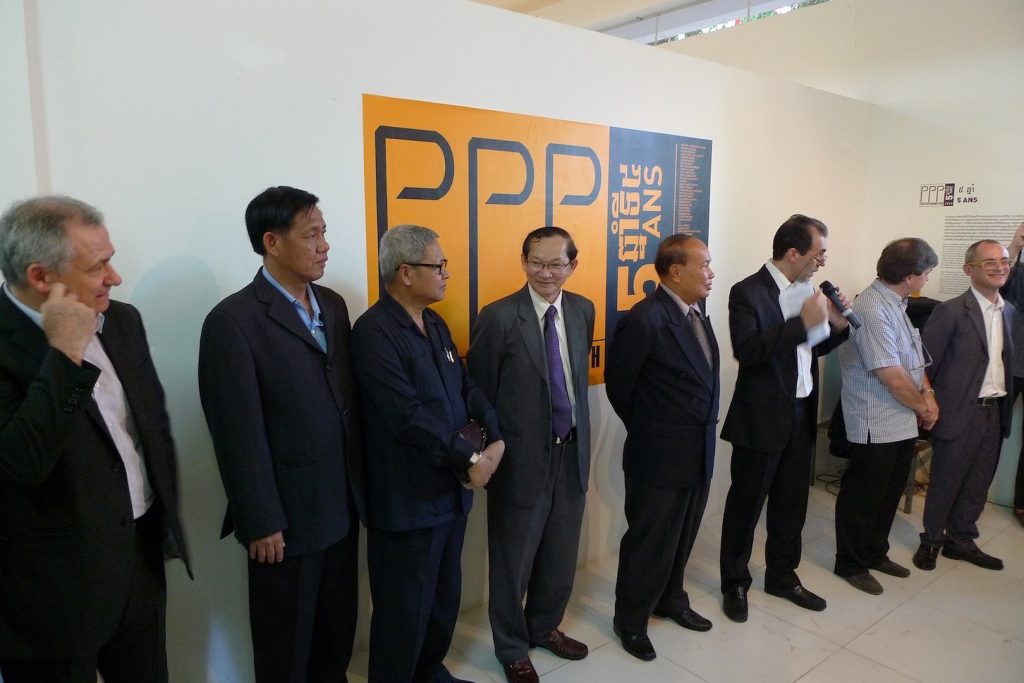Cambodia’s Twisted History. Promoting Washington’s Interpretation of the “Khmer Rouge Genocide”
Keeps Perverting Its Own History, for Cash

I have already written a lot about Cambodia, but each time I return to this ancient and scarred country, I get so outraged by the cynicism that confronts me there, at every corner, that I have to start writing again, re-addressing the same essential issues that I have already been covering for years and decades.
One question always comes back to my mind:
‘How could a nation that suffered so much, losing hundreds of thousands, perhaps millions of sons and daughters (official number stands at 1.7 million), accept a totally twisted narrative fabricated in Washington, London, Paris and other Western capitals? And not only ‘accept’ – Cambodia is actually profiting greatly from helping to spread vitriolic anti-Communist propaganda on behalf of its lethal handlers.’
In all the bookstores around the country, the official Western propaganda narrative (‘Khmer Rouge killed them all’ – style) is on display and on sale: Pol Pot’s biographies, gruesome accounts from the so-called Killing Fields, from the torture chambers at the former high school ‘S-21’ in Phnom Penh, as well as countless and detailed testimonies of the victims.
I asked the owner of a bookshop in Siem Reap:
“What about some books about the atrocities committed by the West? Do you have some volumes about the U.S. carpet bombing of Cambodian countryside, which alone killed several hundreds of thousands of people?”
“Me, not have,” she replied, somehow defiantly.
“Do you have books about how millions of Cambodian people were displaced by the carpet bombing of the U.S. and its allies;how they were forced to flee because of unexploded bombs and so-called ‘bombies’? Anything about those people starving to death?”
“No have,” came the answer.
“Why not?” I asked, politely.
“I don’t know”, she said, by now clearly annoyed.
Outside, my local driver was ready to pitch his services, taking me around, in search of the minefields. He thought I was European. “Chinese mines, Russian mines…” He took long breath, made dramatic pause, and exhaled: “Khmer Rouge no good.”
Rice fields which are also mine fields
Instead of engaging in a historical debate, I simply asked: “This city – Siem Reap – has 230,000 inhabitants. Is it producing anything?”
The driver hesitated for a while:
“Why should we produce anything? It is cheaper to import goods from Thailand, China and Vietnam. Well, there is some farming outside of the city…”
He was correct. I checked several sources. Even Wikipedia describes the situation in no uncertain terms:
Economy: Tourism is a very important aspect of the economy of Siem Reap – it was estimated in 2010 that over 50% of jobs in the town were related to the tourism industry… A large number of NGOs and other not-for profit organizations operate in and around Siem Reap, and they play a vital role in the economy, as well as helping to develop it for the future. Thousands of expatriates call the city home and they also have a significant impact on the economy…
Siem Reap is fully dependent on Westerners; on millions of tourists visiting the nearby Angkor, but also on the ‘experts’ who come here to tell locals how to run their communities, how to think and how to perceive their own present and the past.
The entire country is dependent on handouts, and shamelessly subservient. Most of its teachers, journalists and artists are producing what they are told to produce, say what they are expected to say. Most of them have already lost ability to form their own opinion.
What I never told my driver was that I had already covered almost the entire country, for more than 20 years, visiting all of its corners, talking to the victims, to former Khmer Rouge soldiers, even to personal Pol Pot’s guards. I worked in the minefields near Vietnam, and on Thai-Khmer border, and at the ill-fated and until now disputed temple of Preah Vihear. In Cambodia, like in Rwanda, I wanted to understand how the Western narrative is born, how it gets manufactured, how it gets alimented and finally, how it domesticates, managing to dominate the brains of people all over the world.
*
When in 2014 I was visiting a stronghold of the former commander Ta Mok (once a right-hand man of Pol Pot, who later split the Khmer Rouge movement) deep in a jungle, a friend of mine – a leading international lawyer Christopher Black –contributed to my report, basically confirming what many victims in Cambodia had already said to me:
“The UN-backed war crimes trials of Khmer Rouge leaders are show trials designed to once again demonize communists, and to scapegoat them for the millions of Cambodians who were killed by the American bombing of Cambodia. What the world needs are trials of the American leaders and officers for war crimes for the carpet-bombing of Vietnam, Laos and Cambodia. (We had the Bertrand Russell war Crimes Tribunal in the 70s but it could not enforce its judgments).”
San Reoung, a former personal security man of Mr. Ta Mok, confirmed that all that propaganda about ‘Communist massacres’ by Khmer Rouge was absolute nonsense:
“It was really not about the ideology… We did not know much about it. I was, for instance, very angry with the Americans. I became a soldier at the age of 17. And my friends were very angry, too. They joined Khmer Rouge to fight Americans, and especially the corruption of their puppet dictator Lon Nol, in Phnom Penh.”
Had the killings taken place; did people die during the Khmer Rouge reign? But of course! But the proportions were totally different: many more died because of the bombings and starvation, which followed the displacement of the peasants. In the area of the so-called Killing Fields, 20,000 graves were found. That is a lot; that is truly terrible. But we were told that 1.7 million Cambodian people died. The numbers somehow do not match. The B-52’s were clearly incomparably deadlier than the rifle butts of Khmer Rouge.
After almost a quarter of a century, I’m convinced that since I first began writing about Cambodia, the world public is fully and irreversibly indoctrinated by clichés and half-truths coming from Western mainstream media and academia.
It is time to revisit a few facts and testimonies that I collected in the past. Some of them are already included in my book “Exposing Lies of the Empire”.
After one of the visits to the notorious and above-mentioned ‘S-21’, I wrote:
“After Vietnam ousted Khmer Rouge from Phnom Penh at the end of 1978, this torture center was converted to a ‘Museum of genocide’ by the Vietnamese and East Germans, who were using their experience from setting up Auschwitz Museum in Poland. They kept interrogation cells (originally classrooms) intact, with bloodstained floors, chains and shackles, as well as primitive machines for electric shocks. Thousands of black and white photographs of inmates eerily stare at visitors, their eyes expressing horror and resignation.
Some of the most terrifying images are those created by Vann Nath, a painter and former prisoner of S-21, one of the very few who managed to survive because of his talent and ability to draw complimenting portraits of Pol Pot and of officials who were in charge of the interrogation center. After the Vietnamese invasion, Vann Nath transferred the most terrifying memories onto canvases; a mosaic depicting the barbarity and insane brutality of interrogators — a mother whose baby is being assassinated in front of her eyes, a man whose nails are being extracted by pliers, a woman having her nipple cut off.
But even Van Nath, in a conversation we had almost ten years ago, claims that Khmer Rouge killed around 200,000 people during its reign, a number which he also uses in his book “A Cambodian Prison Portrait: One Year in the Khmer Rouge’s S-21” (White Lotus Press). And among Khmer survivors, there is a consensus that the majority of people died not because of Communist ideology and not because of direct orders from Phnom Penh to exterminate millions, but because of the officers and local cadres in the provinces who ran amok, taking their personal vengeance out on deported city-dwellers and “elites” whom they blamed for both the savage American bombing from the past, and for supporting the corrupt and savage pro-Western dictatorship of Lon Nol.”
It was more than 20 years since I sat down with Mr. Vann Nath, and since we had a series of long and frank talks.
I spoke to many people in Cambodia, from the poorest peasants to the PM Hun Sen’s wife, inside the Royal Palace in Phnom Penh.
EU and Cambodian authorities
The testimonies that convinced me about the total erroneousness of the official narrative did not come exclusively from Cambodian people, both the victims and perpetrators. At some point I realized that the official narrative is designed for the general public only: not even Western ideologues themselves believe in it. In 2006 for instance, I spent an entire evening discussing the issue with a high-level EU official, during his long work visit to Phnom Penh. He did not want to be identified (if his name were to appear under such statements, he claimed, it would mean the end of his career), but he asked me to use his testimony anonymously:
“Khmer Rouge killing more than a million Cambodians? Impossible! They had no capacity to kill so many people. Sure, between one and two million people died between 1969 and 1978, but that number includes 500,000 or more of those massacred by the U.S. carpet bombing before Khmer Rouge took over… Then, most of the people died because of starvation and illnesses. Furthermore, terrible massacres did not happen because of the communist ideology of Khmer Rouge. It was never on that level. U.S. carpet-bombing and Lon Nol’s brutal dictatorship fully sponsored by the West pitched local people against each other. Killings were performed out of vengeance, not on ideological bases. Peasants went insane from enduring B-52 carpet bombings. Many were tortured, massacred and disappeared during Lon Nol’s reign. Country folks hated city dwellers, blaming them for all misfortunes and horrors they had to endure, as well as for collaborating with foreigners. And most Khmer Rouge soldiers and cadres came from the countryside.”
*
After Vietnam liberated Cambodia from the Khmer Rouge, the West, particularly the U.S. kept supporting Pol Pot and his clique, demanding at the United Nations the “immediate return of legitimate government.”
The West was willing to do basically anything to prevent the Communist and pro-Soviet Vietnam from becoming a truly regional power. The U.S. unscrupulously supported a ruthless, corrupt and fascist government in Phnom Penh; it murdered hundreds of thousands of Cambodian peasants by brutal carpet-bombing, and even supported the deranged and confused Khmer Rouge army… It would have done much more if ‘needed’; it would have done anything, to stop the real Asian left from taking power! ‘If necessary’, it would have arranged for the killing of further millions, as it already had done in Indonesia, after the 1965 coup.
As a result of this policy, at least 1.5 million Cambodian people died. Not as a result of some imaginary ‘Communist genocide’, but because of the single-minded policy of terror, which the West has been implementing everywhere–a policy designed to prevent Communist movements from winning elections as well as revolutions; a policy that has already killed tens of millions all over the world, but particularly in Asia and Latin America.
*
Now the chief (and very well paid) job of Cambodian ‘intellectuals’, as well as of book publishers, booksellers, teachers, journalists and tour guides, is to uphold the official Western narrative about their country’s past.
Promoting Washington’s interpretation of the “Khmer Rouge Genocide” is tremendous business, while exposing the true genocide committed by the U.S. and its allies here and all over Southeast and North Asia is something that pays absolutely nothing and could easily ruin lives and careers; to make a person unemployable, or worse.
Mass tourism brings millions of already indoctrinated, instructed individuals, who are ready for hair-raising stories and genocide monument selfies. In Cambodia, they encounter thousands of willing ‘guides’ who will provide, for a fee, further details and pre-approved stories.
Like this, nothing will ever change.
The truth can be found far away from the monuments and museums; it is hiding in the jungle, in humble villages all over the country, and near the border with Vietnam.
There, people know, they remember and are willing to talk. But no one, it appears, lately,is willing to listen to them.
Andre Vltchek is a philosopher, novelist, filmmaker and investigative journalist. He has covered wars and conflicts in dozens of countries. Three of his latest books are his tribute to “The Great October Socialist Revolution” a revolutionary novel “Aurora” and a bestselling work of political non-fiction: “Exposing Lies Of The Empire”. View his other books here. Watch Rwanda Gambit, his groundbreaking documentary about Rwanda and DRCongo and his film/dialogue with Noam Chomsky “On Western Terrorism”. Vltchek presently resides in East Asia and the Middle East, and continues to work around the world. He can be reached through his website and his Twitter.
This article was originally published by New Eastern Outlook.
All images in this article are from the author.




